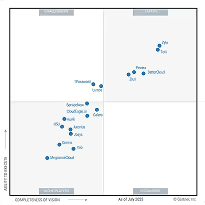HIPAA Compliance Checklist for 2025

Did you know that 60 percent of supply chain disruptions in 2024 were traced back to third-party vendor failures?
That means a single overlooked supplier could cost your business millions in lost revenue, penalties, or reputation damage. In today’s fast-paced business environment, vendors are not just partners; they are critical links in your operational chain. A delayed shipment, a financial hiccup, or a cybersecurity breach can ripple across your organization, creating headaches no one saw coming.
“Vendor risk management is no longer a one-time checklist; it's a continuous, evolving process. Organizations must move beyond static assessments and embrace real-time monitoring to effectively mitigate risks.”
— Chris Audet, Gartner Analyst
This is where vendor assessments make the difference. By systematically evaluating supplier performance, compliance, and risk, companies can make smarter decisions, reduce costs, and keep operations running smoothly. And with AI-powered platforms like CloudEagle.ai, vendor assessments are no longer tedious manual tasks, they become data-driven, automated, and proactive.
What is Vendor Assessment?
A vendor assessment is a systematic process to evaluate a third-party supplier's capabilities, performance, and overall suitability to meet an organization's needs and standards. It involves analyzing aspects like security, quality, reliability, and compliance to identify and mitigate risks associated with using the vendor, ensuring they align with business objectives and can maintain critical operations.
- Reliability and operational capability
- Compliance with contracts and regulations
- Risk exposure to financial, operational, and cybersecurity issues
For instance, a mid-sized retail company found that one of its logistics partners was financially unstable. Without a proper assessment, delayed deliveries could have impacted hundreds of stores and revenue streams. This example shows why vendor assessments are critical not only at onboarding but throughout the vendor lifecycle.
Effective assessments uncover hidden vulnerabilities such as delivery failures, financial instability, data security gaps, or poor service quality. They form the foundation for risk mitigation, supplier selection, and strategic partnerships.
What Are the Core Components of an Effective Vendor Assessment?
An effective vendor assessment evaluates a vendor's Financial Stability, Operational Capabilities, Product/Service Quality, Compliance, Communication, Cost and Value, Security and Privacy, and Innovation to ensure they meet your organization's needs and align with business goals.
Key steps include defining clear assessment criteria, gathering vendor information through questionnaires, and analyzing this data to identify potential risks and select the best fit for your organization.
Performance and Delivery History
Reliability is key. Track metrics such as:
- On-time delivery rate (target 95 percent or higher)
- Defect frequency (less than 2 percent)
- SLA adherence
Financial Health and Stability
Financially unstable vendors increase your risk. Evaluate:
- Credit ratings and financial statements
- Payment histories
- Cash flow alerts
Deloitte reports that 28 percent of vendor failures are linked to financial instability, highlighting why this is a critical metric.
Security, Privacy, and Compliance
Breaches and regulatory violations are costly. Assess:
- Cybersecurity policies and penetration test results
- Compliance certifications (SOC 2, ISO 27001, GDPR)
- Audit history
Example: A healthcare provider audited its cloud provider for GDPR compliance and discovered gaps in encryption practices. Addressing this before renewal avoided potential fines exceeding $100,000.
Cost, Value, and ROI
The lowest price is not always the best. Consider:
- Total cost of ownership
- Contract terms and hidden fees
- Service quality relative to cost
Vendor assessments help ensure that higher-priced vendors provide real value, such as reduced risk, better service, or innovation.
Scalability and Technological Fit
Vendors should grow with your business. Evaluate:
- Integration with ERP, SaaS, and APIs
- Product roadmap and innovation capability
- Flexibility to support evolving business needs
Customer Support and Responsiveness
Fast support reduces downtime. Measure:
- Response times and escalation procedures
- Support hours availability
- Satisfaction ratings
Maintain a vendor satisfaction scorecard to track performance over time.
Reputation and Market Feedback
Vendor self-reports are not enough. Use:
- References and case studies
- Online reviews and peer feedback
- Industry reputation
Peer feedback often uncovers concerns not visible in formal documentation.
Step-by-Step Vendor Assessment Process
A comprehensive vendor assessment process involves defining needs, identifying potential vendors, screening and shortlisting candidates, requesting detailed information (RFI/RFP), evaluating responses against predefined criteria, conducting a risk assessment, performing due diligence (such as site visits), and finally selecting the vendor to negotiate a contract and onboard them.
Step 1 – Define Assessment Criteria
Identify priorities such as security, cost, delivery, compliance, or reputation. Align criteria with business objectives.
Step 2 – Collect Vendor Information
Gather data using:
- Questionnaires and interviews
- Documentation audits
- Site visits and external research
Tailor requests to vendor tier and risk profile.
Step 3 – Use Scorecards and Evaluation Tools
Track results using weighted scorecards or dedicated software. Scorecards help visualize trends and spot risks early.
Step 4 – Conduct Comparative Analysis
Research vendors against each other and previous suppliers. Use a combination of quantitative scores and qualitative feedback.
Step 5 – Engage Stakeholders for Final Review
Include procurement, legal, IT, compliance, and business teams. Cross-functional review ensures all risks are addressed before finalizing contracts.
Best Practices for Ongoing Vendor Assessment
Vendor management is continuous. Best practices include:
- Regularly Update Risk Profiles: Refresh data on financial changes, security incidents, and compliance updates.
- Involve Cross-Functional Teams: Procurement, IT, and compliance teams contribute to comprehensive risk management.
- Monitor SLA and Contract Compliance: Automate alerts for breaches and policy violations.
- Keep Exit and Transition Plans Ready: Maintain alternatives to avoid business disruption if a vendor relationship ends unexpectedly.
Example : A fintech company automated SLA monitoring and avoided $75,000 in penalties from delayed software updates.
How CloudEagle.ai.ai Elevates Vendor Assessment
CloudEagle.ai, an AI-powered platform, simplifies this process by centralizing, automating, and optimizing vendor risk management. By bringing all vendor-related data into one unified platform, CloudEagle.ai empowers procurement and risk teams to make smarter, faster decisions.
Centralized Vendor and Contract Data
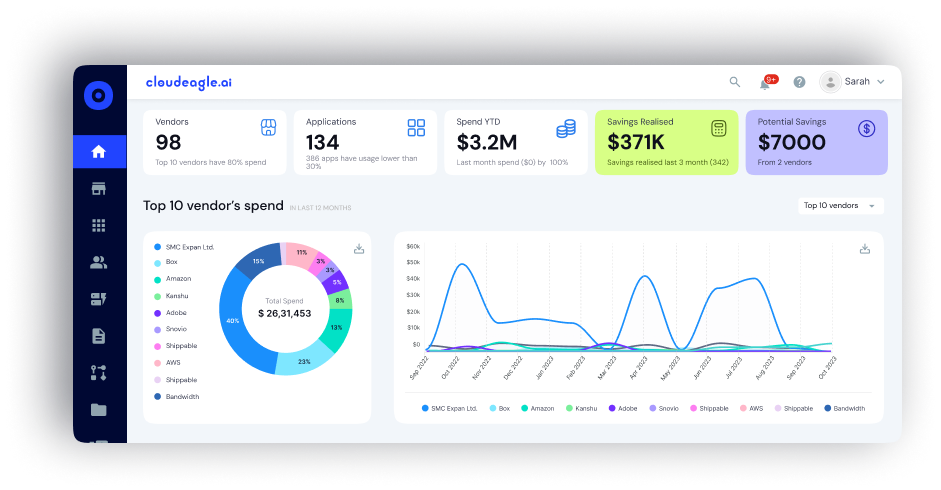
CloudEagle.ai consolidates every vendor, contract, renewal, and usage metric into a single, intuitive dashboard. This centralization makes audits and reviews seamless, eliminating the need to dig through scattered spreadsheets or emails. With instant access to comprehensive vendor information, teams can focus on strategic decision-making rather than administrative tasks.
AI-Driven Vendor Risk Scoring
The platform continuously evaluates vendors across multiple dimensions, including financial stability, security compliance, operational performance, and regulatory adherence. Each vendor receives a dynamic risk score, offering procurement teams real-time visibility and actionable insights. This proactive approach helps organizations identify potential risks before they become costly problems.
Automated Workflows and Notifications
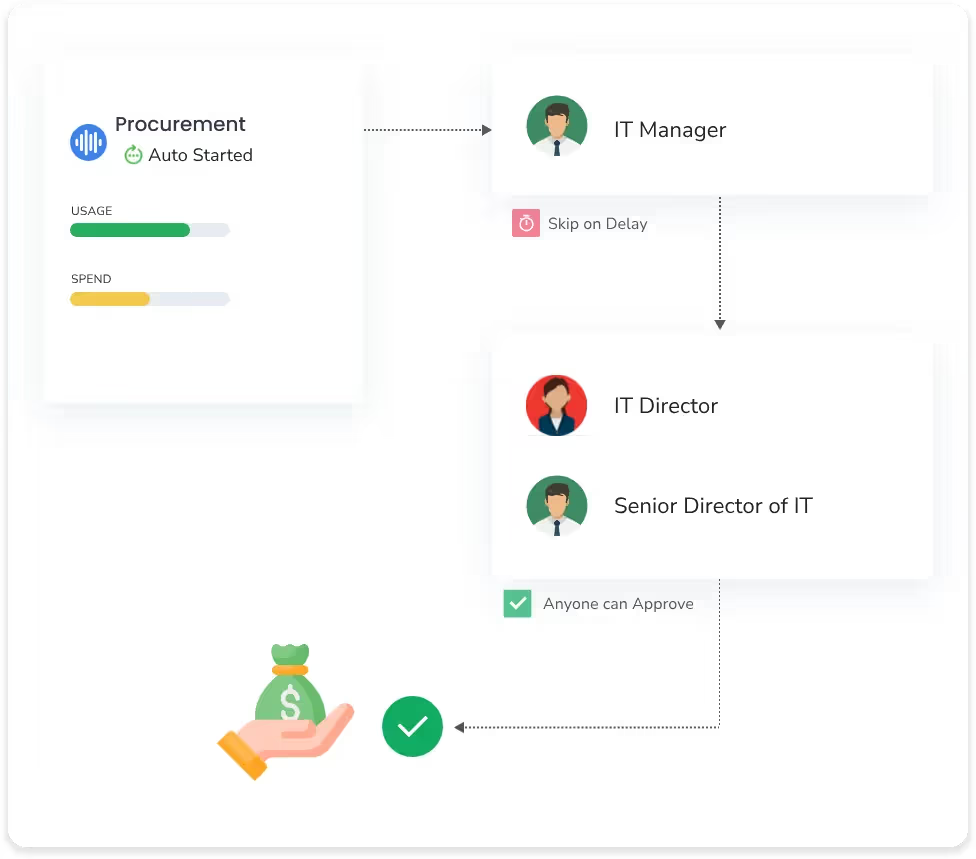
Never miss a contract renewal or risk reassessment again. CloudEagle.ai automates alerts and escalation workflows, ensuring timely action at every stage of the vendor lifecycle. By reducing manual follow-ups and administrative overhead, your team can stay ahead of deadlines and maintain smooth operations.
Data-Backed Negotiation Insights
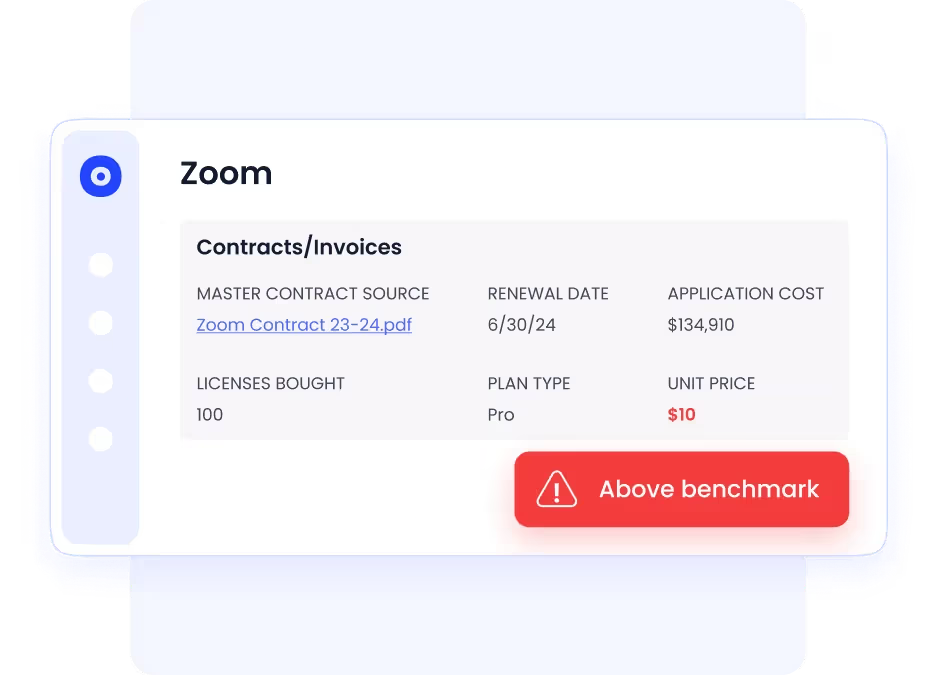
Negotiating better contracts is easier with CloudEagle.ai. The platform leverages historical benchmarks and vendor performance data to provide actionable insights, helping organizations reduce costs, improve service quality, and make more informed decisions. CloudEagle.ai doesn’t just give you data; it turns information into tangible business value.
Seamless Integrations
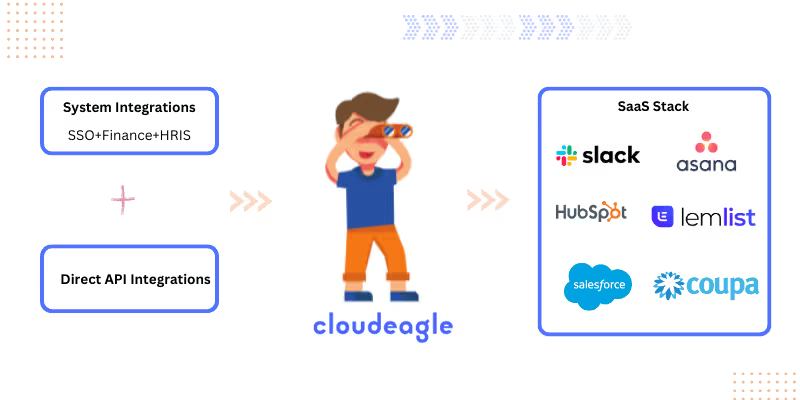
CloudEagle.ai integrates effortlessly with ERP, finance, and SaaS systems, streamlining vendor onboarding, monitoring, and reporting. These integrations ensure that your teams always work with up-to-date information, fostering collaboration across departments and enhancing operational efficiency.
Proven ROI
Organizations leveraging CloudEagle.ai report measurable benefits, including:
- Up to 20% reduction in vendor-related disruptions
- 15–25% faster contract review cycles
- Improved efficiency in compliance reporting
With CloudEagle.ai, vendor management is no longer a reactive process. It becomes a strategic advantage, enabling businesses to minimize risk, optimize vendor performance, and make smarter procurement decisions.
Conclusion
Vendor assessments are essential for operational continuity, cost control, and compliance. By evaluating performance, financial health, security, scalability, and reputation, and by following structured workflows, businesses protect themselves from costly disruptions.
AI-driven platforms like CloudEagle.ai make vendor risk management proactive, automated, and strategic. With centralized vendor data, AI-powered risk scoring, negotiation insights, and seamless integrations, CloudEagle helps companies minimize risks, build secure partnerships, and accelerate long-term growth.
Book a free demo today and discover how CloudEagle.ai can simplify and strengthen your vendor risk management.
Frequently Asked Questions
1. What is a vendor assessment?
A structured evaluation to determine if a supplier meets business, regulatory, and risk requirements
2. What are the stages of vendor assessment?
Define criteria, collect information, score and evaluate, comparative analysis, stakeholder review
3. What are common vendor risk types?
Financial instability, cybersecurity breaches, compliance violations, operational failures, reputation damage
4. How to assess vendor performance?
Track metrics like delivery timeliness, quality, responsiveness, and SLA adherence
5. What are best practices for vendor risk management?
Update risk profiles, involve cross-functional teams, monitor SLAs, and prepare exit strategies

%201.svg)







.avif)




.avif)
.avif)




.png)
